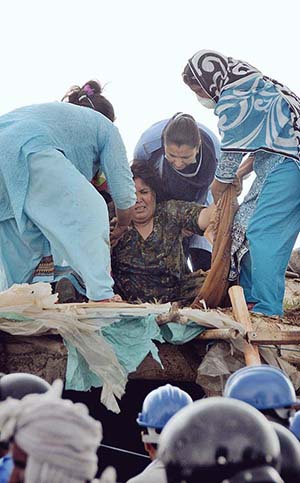
by Waqas Malik, Tenant
On July 30, more than 16,000 people were evicted from the Sector I-11 katchi abadi or squatter settlement in Islamabad, Pakistan, near the border with its sister city of Rawalpindi.
More than 1,000 police officers were deployed, along with scores of paramilitary troops and personnel from the Capital Development Authority (CDA), the public corporation in charge of development in Islamabad, Pakistan's capital. They were dressed in riot gear, brought armored vehicles, and fired tear-gas shells into the settlement. A 16-day-old baby boy died of asphyxiation from tear-gas after multiple shells burst inside his home. I-11 residents say he wasn't the only child who died from the gas, and that Islamabad police harassed and threatened the baby's parents until they signed a false death certificate.
They bulldozed the modest homes in the settlement, along with the well-tended plants, little shops, too few schools, and four mosques—the threadbare, self-made infrastructure that the residents of I-11 pieced together by themselves, without any government-built infrastructure. (Islamabad's katchi abadis are the only places in the city where solar energy is used, due to the government cutting off electricity, gas, and water supplies.) The people left behind scrambled for what was left before the bulldozers crushed their hard-earned possessions. They were rounded up by the CDA, loaded like livestock into trucks, and told to go back to "where they came from."
Recent Updates
5 hours 17 min ago
5 hours 56 min ago
10 hours 10 min ago
10 hours 40 min ago
1 day 3 hours ago
1 day 3 hours ago
2 days 12 hours ago
3 days 3 hours ago
3 days 4 hours ago
3 days 4 hours ago